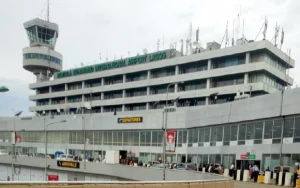
The Senior Special Assistant to the President on Public Sector Matters and the Secretary, National Action Committee (NAC) on the African Continental Free Trade Area (AfCFTA), Francis Anatogu, has said that the first goal of the implementation plan was to grow the export capacity of every state to the tune of $1.2 billion focusing on specific products and service chains.
This, he said, would make every state and community in Nigeria economically viable and resilient through intra-Africa trade.
Anatogu, in his keynote address at the 29th mandatory Continuous Professional Development Workshop of the Institute of Public Analysts of Nigeria (IPAN) with the theme ‘Africa Continental Free Trade Area (AfCFTA): The Crucial Role of Quality Assurance of Products’ said there was a lot ongoing at the state level in terms of building production and service capacity.
According to him, there are two key areas the committee has started working on in the implementation space, which include aggregating small and medium enterprises for export and e-commerce initiatives to make products visible.
Another key area is the area of commercialising research findings to improve yield, he said.
While emphasizing that Africa imports about 80 per cent of what it needs, he said the AFCFTA would provide an opportunity to grow intra-Africa trade and double Nigeria’s export revenue by 2035.
He added that there are a lot of projects already ongoing in the infrastructure space, such as access to finance promoted by the Central Bank of Nigeria (CBN), Bank of Industry (BOI) among others. This, he said, would create an enabling environment for businesses to thrive.
He said: ”A lot is being done by the Nigerian Export Promotion Council (NEPC), and the Small and Medium Enterprises Development Agency of Nigeria (SMEDAN) in terms of growing capacity of Nigerians to export.”
He noted that the National Action Committee has identified several initiatives and programmes that would be working with IPAN to implement.
He said: ”They talked a lot about the conformity assessment accreditation among others. This is also an area where we need to work together to see what kind of incentives we need to develop for Nigerian businesses to be able to conform with the international standards and global practices that we need to get our products and services to Africa and beyond.”
Registrar and Chief Executive of the Institute, Aliyu Angara, said the theme of the workshop was carefully chosen by the Institute to emphasize the crucial role of quality assurance of products and conformity assessment bodies in the AFCFTA, provide more information to the public analysts, scientists, regulators, manufacturers of regulated products and the general public on the challenges of products rejection confronting some African countries.








